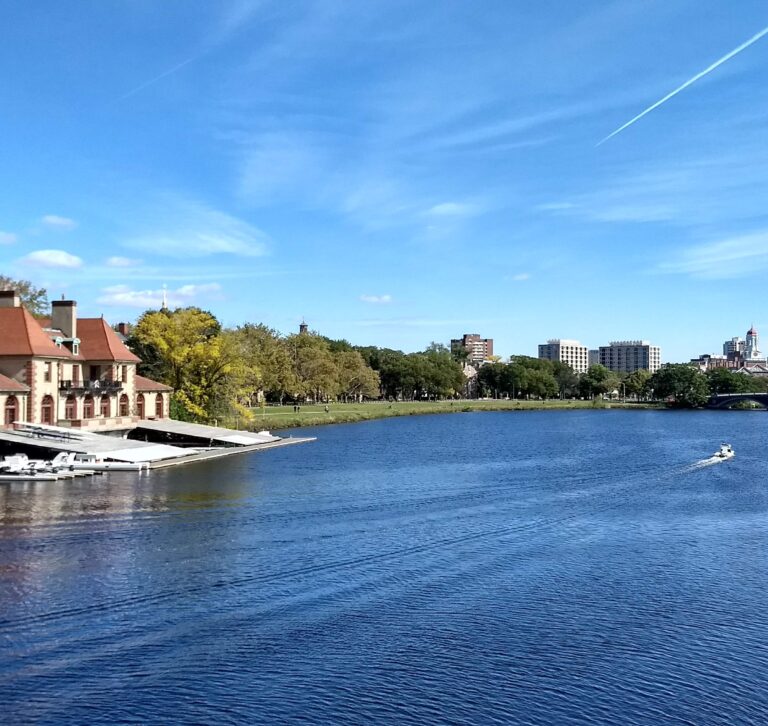Searching for a job and starting a new career in edtech remotely during the pandemic
Almost two weeks ago in late February, I celebrated a milestone of sorts, my first month at my new job, and a new career in higher education and technology. Just combine those two fields and you’ll come up with my job title – Educational Technologist – at Boston University Medical Campus. As in most new beginnings, starting this new position and career have had its fair share of ups and downs. The pandemic and subsequent remote-ification of work have made the mechanics of the transition all the more unique, from the job application process all the way to hiring, onboarding, and of course, work itself.
Even before the pandemic, I’ve mostly relied on online job boards, like internal ones for short-term gigs while I was working at the World Bank. My approach this time is mostly the same, only now I had to search on other social media networks like LinkedIn and Facebook groups for instructional designers. In the early stages of my job search, a classmate who also teaches at Georgetown mentioned HigherEdjobs.com, which is probably my favorite platform for opportunities specific to – you guessed it, higher ed – which offers features for tracking applications, resume versions, and alerts and reminders built into the portal. On occasion, friends and acquaintances also sent me job openings, one of which I now hold.
Perhaps I most benefited from the virtual exodus to Zoom when I started fielding interviews, both informational and formal ones. I got to chat with professionals who work at a private company, a non-profit, and even global brands such as HBO and Harvard University, and were located in New Hampshire, Baltimore, New Jersey, and Boston. Except for one, all were held via Zoom, which has become the default means of synchronous communication in professional settings. Then came the real thing: job interviews.
I started getting invited to interviews during the last two months of my final semester. While the majority of the universities were located in the Washington DC, area, the convenience of holding all of them on Zoom was still undeniable — both for the interviewers and for me. Some of the institutions were located at least an hour away from where I live. Traveling to Boston, meanwhile, would have been costly and disruptive to my academics had the series of interviews been in-person. I even had three different interviews in one day, including one in Boston, which is probably the closest to teleportation I can get. And since a good internet connection was and is still a must, I went as far as booking a private room in a co-working space in Georgetown. The office space and the rideshare expenses were very much worth the peace of mind I got from eliminating the risk of getting disconnected in the middle of my two portfolio presentations. I’m not new to job interviews conducted remotely. About a decade ago, I interviewed by phone all the way from Hamburg for the first job that eventually brought me to Washington DC. By the end of this year’s job search cycle, I had participated in a total of 14 interviews, most of them Zoom calls.
When the time came to work – just a month after I was hired – Zoom became my de facto office space. On my first day of work, I put on what I thought could pass for office attire, a collared shirt and comfortable pair of pants, and logged on to Zoom for the three-hour staff onboarding. Later, team meetings and my core tasks of training faculty to set up LMS and assessment tools and helping students troubleshoot Examplify were all done via Zoom.
I still find it odd that I have formed some degree of professional relationships with my colleagues, people I haven’t met in person, all of whom live in the Boston area. I also try to attend professional events and meetings so I can stay engaged with my work place. This Zoom-centric work environment may not come as a surprise in the new industry I’m joining. Edtech lends itself naturally to remote work, as we promote tools and technologies that allow learning to continue whether in the classroom or online, a career made all the more essential due to the perils of the pandemic.
We are one year into the pandemic. This means for the past year many of us have been studying and working remotely, living socially-distanced, and holing up in our dwellings. Many believe this is our new normal. While I have gotten used to doing minimal prep work in the morning and skipping a morning commute before I boot up my computer to log on to Zoom, I look forward to taking the T and settling into my new work station someday.
